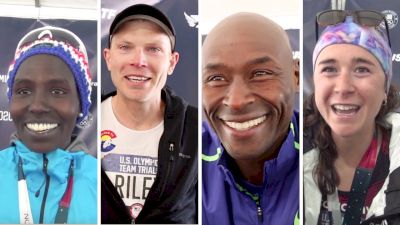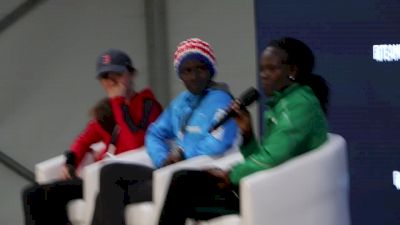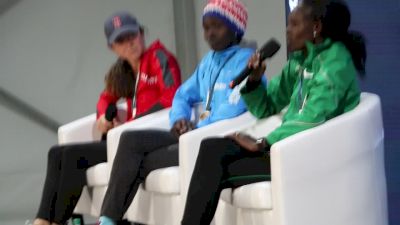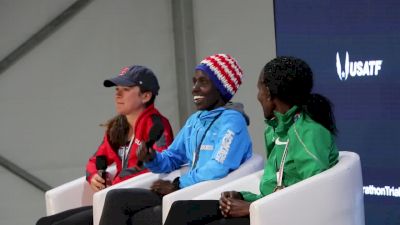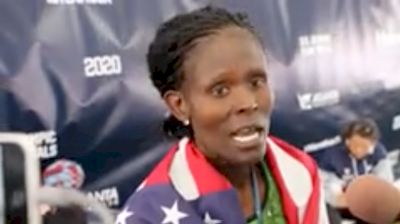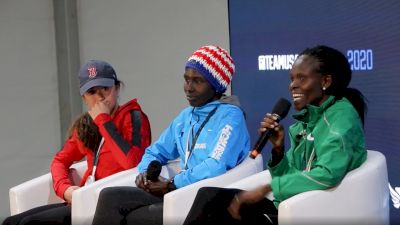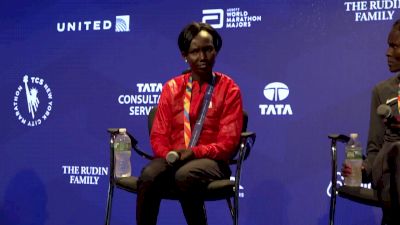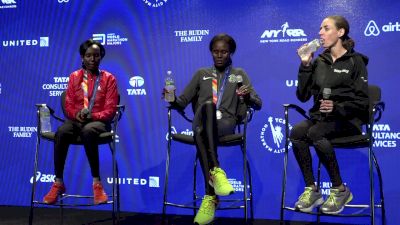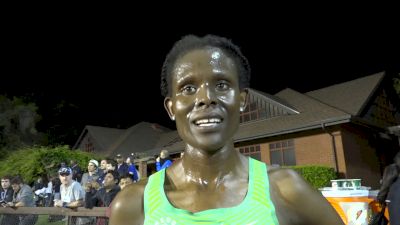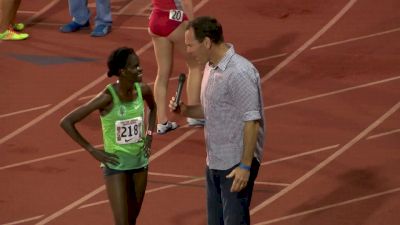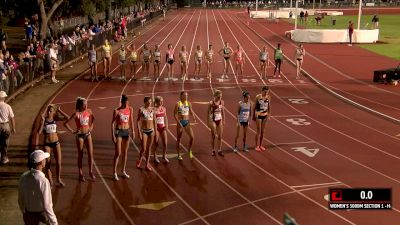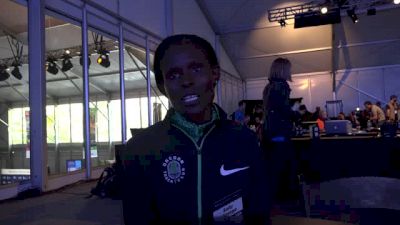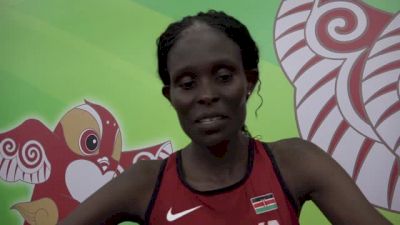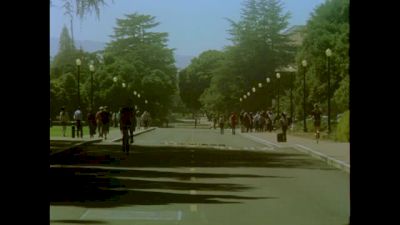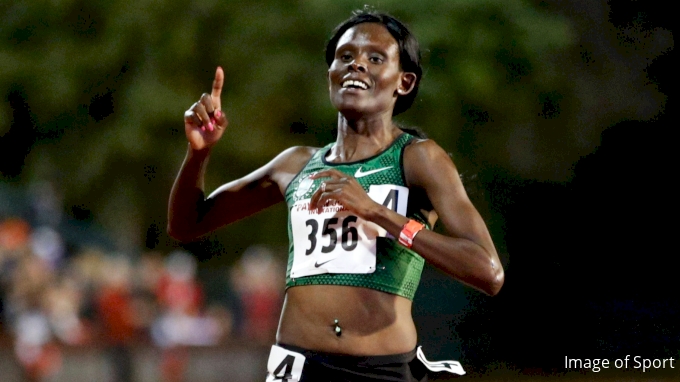
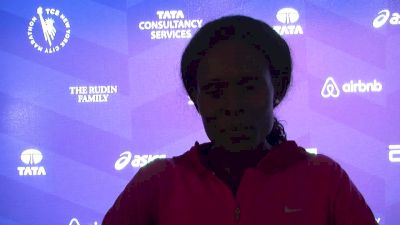
Sally Kipyego is ready for a comeback after dropping out of last year's NYC Marathon
Nov 4, 2016
Transcript From ASAP Sports
Q. Talk about your training and sort of how it's gone this last time.
SALLY KIPYEGO: This time around, I had enough time to prepare. So I've been faster the last two months. My training is going, I think, much better than last year just because I think I had enough time.
I'm a bit conscious that I had a tough time last year. But I think my training has gone well.
Q. Talk a little bit about what happened last year and what you have done to correct whatever that was.
SALLY KIPYEGO: I think last year I was training for months, and then the wheels fell off. It was difficult. I think the reason why was I just didn't have the base behind me, and I don't think I had enough time to prepare for a marathon. New York is one of those where it's just really difficult. The course is difficult, especially the last 10K, and if you come up to the last 10 kilometers empty, it can be difficult to finish. I think that's what happened. I didn't have the volume. I didn't have the mileage in my legs.
So the last 5 or 10K that I dropped, it was not because I had the mileage. Like I said, my training has gone really well this year, and I gave myself enough time to prepare for a marathon. Hopefully, I'll have a better day on Sunday.
Q. What kind of long runs have you done getting ready for this race?
SALLY KIPYEGO: I've done long runs. I've done a 25-miler. I've done some 20-milers. I've done plenty of long runs to make sure that whatever happened last year won't happen again. And I just want to give myself a chance to be able to come to New York and enjoy this event. I just want to be on stage and be competitive but also have a good experience. To have a good chance to win the marathon and to know that I can run well in that event and be able to finish because I think that's the most important thing.
For me, I want it to be a good experience. I want to have a solid run. Last year it made me realize this is not a 10K, you can't just come in here with running 80, 70 miles and get away with it. You have to do the work. There's no way around it. If you haven't done the work, it's going to end badly.
Q. [ No microphone ].
SALLY KIPYEGO: Considering how difficult that was for me, a competitive athlete, I never go to a race -- I'm too competitive to do that. I want to go to races and compete and be a factor. So that was very difficult, a very hard pill for me to swallow.
I'm thinking it's good now that I'm competitive because I want to have another chance. With marathons, it's difficult to learn and takes time to master the marathon. It's absolutely not going to happen again. If it happens, it won't be as bad as that.
Q. How are you with training?
SALLY KIPYEGO: Training has gone well. So I've done the work. It's a matter of just being patient and executing.
Q. Is one of the big differences in your buildup not having to peak for a World Championship?
SALLY KIPYEGO: Yes.
Q. So you can extend your buildup?
SALLY KIPYEGO: Absolutely. It was very disappointing for me to miss Rio. For the last four years, I wanted to go to Rio. The plan was to go to Rio. But I went to the trials, and I had a bad day. I didn't win it. Without going to Rio, it gave me time to prepare and settle down. So it was a good thing that I had a chance to prepare for this. Come back and prepare for this.
Q. [ No microphone ]?
SALLY KIPYEGO: I have a plan, and I'm going to stick with it. Mostly for me, I'm going to try to run within myself. My training has gone well. I have been training in Flagstaff for the last two months. My training has gone well, as good as it can. I think the body's ready. I think the body's ready. My mind is there. I'm committed. So just I'm going to try to run on Sunday to the best of my ability and see what that is. Try to have a good experience. I just want to have a good experience in a marathon after what happened last year.
Q. Last year you stayed with the leaders for close to 20 miles and then what happened?
SALLY KIPYEGO: And then I missed my bottle. I missed my 30K bottle, and it was just a lapse in concentration. I really did not -- I saw the bottle is coming, and I had that lapse of concentration for just a split second, and I realized I had missed it and was too late to go back. And I made the rookie mistake that rookies do. I could have probably gotten away -- I could have just run and missed that bottle and ran with the leaders, but what did I do? I went back. I turned around and went back for my bottle, and I grabbed it.
At that point, I think I missed my chance, and that was that. Then I made a second mistake. I pushed too hard because I tried to catch up with the leaders. I pushed really hard, and it was too hard, and then I just realized that I pushed too hard it was the wrong time for my legs, and I was too aggressive. That was the end of that. I was glycogen depleted, and there was nothing I could do. There was nothing I could do no matter how much I wanted to.
Q. How far back did you go to get it?
SALLY KIPYEGO: I never got back. But it was a tactical moment. I shouldn't have gone back. I panicked because I --
Q. Just to be clear, you went back to get your bottle, you actually picked up your bottle and you were able to drink it?
SALLY KIPYEGO: Yes.
Q. Did you do anything differently in your training this year?
SALLY KIPYEGO: I did more long runs, and I did more -- and I had enough time to train.
Q. How is running in New York different from running anywhere else in the world?
SALLY KIPYEGO: Well, New York is -- I've run half marathons, I've run a mile, I've run a lot of different things in New York. It's that energy. It's the energy from the crowd. Everybody gets excited. I've done a lot of races in this city, and I love the energy.
Q. How disappointed were you this summer not to go back to the Olympics?
SALLY KIPYEGO: Every preparation I did was to go to the Olympics. Not at one point did I think I wasn't going to Rio. Everything was going to Rio. Ironically, I felt more prepared in 2016 than I was in 2012. It's very ironic. I felt that everything felt better, and I felt more prepared for the trials in 2016 than in 2012. And then I go to Kenya, and they take the trials to Eldoret, and that was that. I had a bad day. It was a warm morning day in Kenya, and that was the end of that.
Q. What's the altitude in Eldoret?
SALLY KIPYEGO: It's about 10,000 feet.
Q. What is Nairobi?
SALLY KIPYEGO: 5,000. 2,000. I never really liked running at altitude. I've always run in Kenya for trials but it's like surviving. Even in 2012 when I made the team, I felt I survived. So I've always had a struggle a little bit, and I always say altitude is not about athleticism. It's the people that adapt the most to those conditions that do the best, and sometimes if your body is not used to it, you can be in the best shape of your life and not run well.
Q. What's your goal for Sunday?
SALLY KIPYEGO: A solid performance, whatever that is.
Q. What mile did you end up dropping out last year?
SALLY KIPYEGO: 23 miles.
Q. Were you training with a group in Flagstaff or by yourself?
SALLY KIPYEGO: I trained with a few people in Flagstaff. We got to run together sometimes. I did long runs with Janet Bawcom. I did a workout with Lanni. I had a few people to workout with in Flagstaff.
